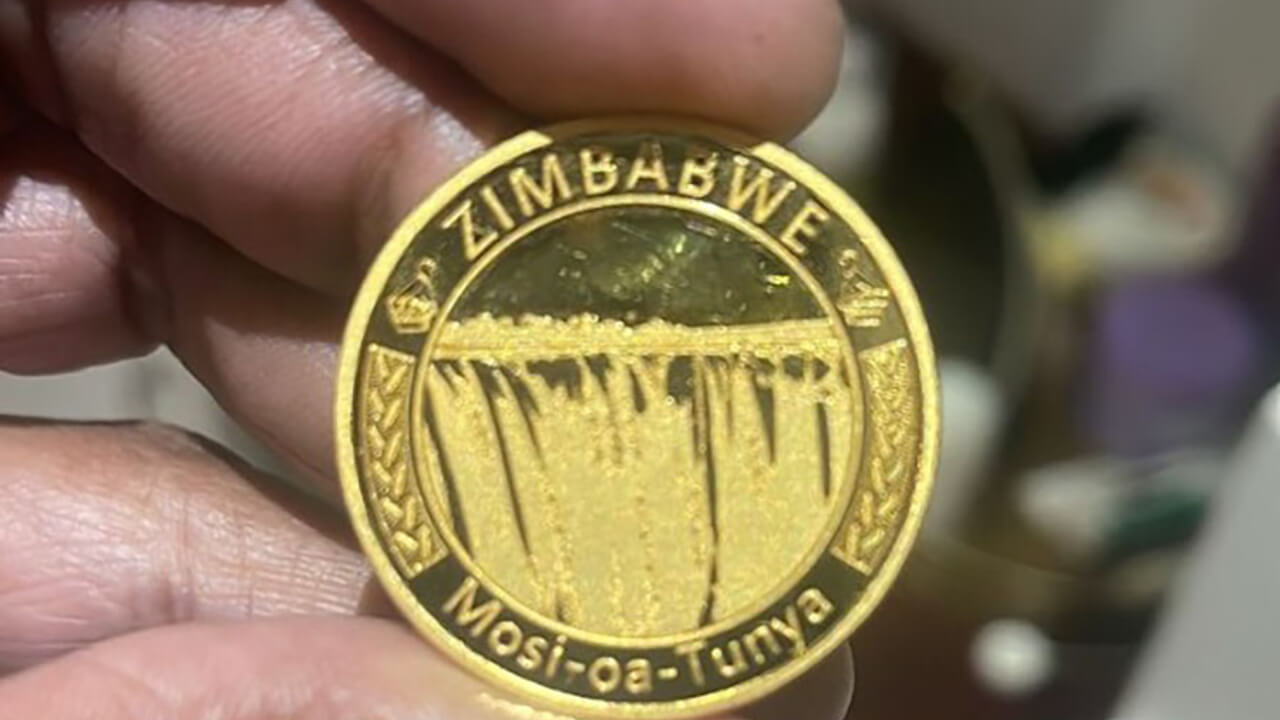‘Gold-backed tokens to solve small change crisis’
The Gold-Backed Digital Tokens (GBDTs) will solve small change crisis, especially when buying using US dollars and there is a huge opportunity that authorities can exploit, supplemented by good publicity, an economist said on Friday.
The Reserve Bank of Zimbabwe (RBZ) introduced gold-backed digital tokens as part of efforts to reduce demand for US dollars on the market.
On the parallel market, activity seems to be slowing down due to decreased appetite for the US dollar and increasing local currency liquidity shortages.
The shortage of Zimbabwe dollars may be attributable to increased salaries in the US dollar, increased dollarisation in the economy and lagged payments to contractors.
In its 2023 midterm monetary policy statement review, the RBZ hinted that it would launch an awareness campaign in each of the country’s provinces in anticipation of the GBDTs’ advanced Phase II (transactional phase).
Misheck Ugaro, an economist said using GBDT as a transaction unit should work since dollars technically are not working because transactions in dollars over the counter are actually not working.
“If you want to buy something for US$1.65, you cannot buy it because there is no denomination that can add up to US$1.65.
“So, the market is not aware and actually, that is a technical sign that even the
dollar itself is not working, so all the transactions.
“It’s just working for round transactions, which is actually causing problems and it also causes inflation because it forces prices up to round them up, so gold backed tokens should address that either by being divisible or by being backed by gold. There is therefore room for gold-backed tokens to come in and fill that gap,” he said.
He said there is a gap in the question of change.
So, in terms of acceptability, it should be easily acceptable instead of you being given a shop’s receipt that says you have changed. If they give you gold tokens as change, that’s the beginning of the working of the gold tokens,” he said.
As a result of a dearth of tiny change, companies have begun printing their own ‘money’ in the form of pieces of paper that consumers may use to pay for future transactions.
“What the shops are doing now is giving you their own tokens, which are not supported by anything and customers are accepting those,” Ugaro said.
However, the customers accept the tokens based on trust and faith that the shops will honour and accept them when they come to redeem them.
“There is no way the market should delay that should create a way for growth in the number of transactions that will now be transacted using gold backed tokens, so there is a huge opportunity that the authorities can exploit supplemented by good publicity.”
GBDT came into play following the Zimbabwe dollar’s recent depreciation against major currencies on the back of deteriorating confidence in the domestic unit.
The apex bank expects the GBDT to form the basis for the development of the country’s central bank digital currency (CBDC).
First Mutual Wealth, in its economic and market review report, said GBDT will likely partially achieve the desired outcomes.
“The current trust deficit around currency will likely slow down developments around GBDTs being accepted and successfully complementing the use of Zimbabwe Dollar and USD for transactional purposes,” reads the report.
“Detailed and Exchange rate and Inflation friendly GBDT transactional framework critical to ensure successful kick-off of this phase.”
While the GBDT will be the fourth currency, there are rumours in the market that it will be the fifth currency, likely to be used to pay former white farmers.-ebusinessweekly











